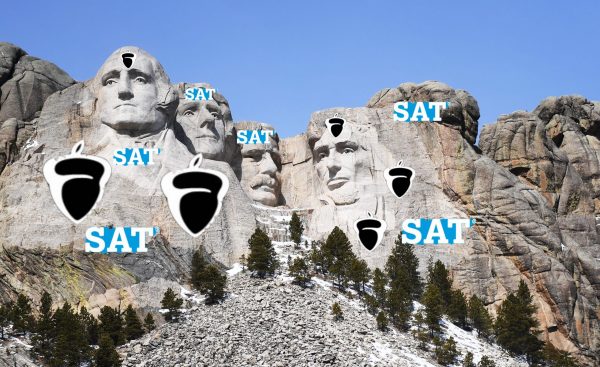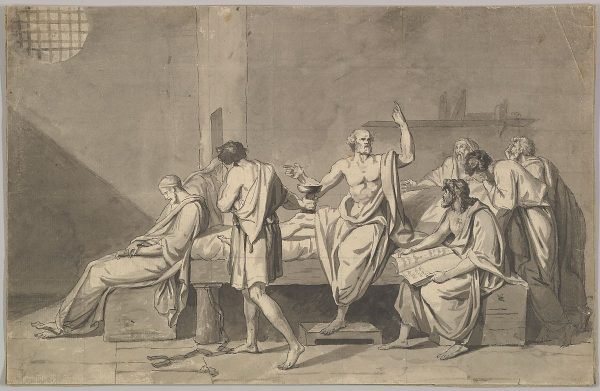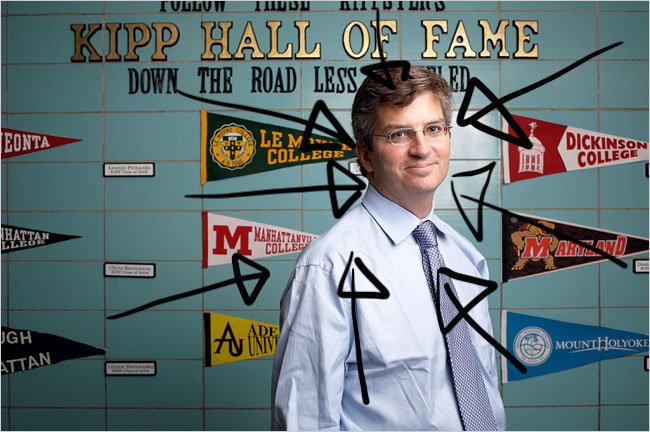Education is in for an overhaul. It won't all be good.
How the SAT Killed Civics

Teaching the test has made our country lose its way.
America spends well over $700 billion per year on education, yet the results from this massive investment are abysmal. Given the constant discussion about reopening schools this fall, it’s disappointing to see almost no discussion of the basic purpose of school, or of what students are supposed to be learning in the first place.
Take civics: a study conducted by the Woodrow Wilson National Fellowship Foundation found that only 19% of American adults under the age of 45 could pass the U.S. Citizenship Test. People 65 and over did the best, with a 74% success rate—yet this is also the age group that, according to census data, has had the least formal education.
The ostensibly most-educated Americans have the worst grasp of basic civics. Why?
One place to look is the SAT. State governments impose varying curriculum requirements on public schools, but practically all are beholden to the SAT, which has a near-monopoly on college entry exams. This allows the College Board to dictate what happens in the classroom, because no school wants to set its students up for failure on an exam of that magnitude. Nor can they afford to.
But the SAT not only doesn’t test civics, it doesn’t use readings that are relevant to it with any consistency. As often as not, the readings are taken from textbooks or periodicals rather than from primary sources (or anything that could be called interesting). Current affairs may put in an appearance, but the deeper principles of democracy, law, and human rights probably won’t. After all, that stuff is all abstract.
Apparently, preparing students for the job market is all education is for! This means that in practice, there’s not much reason for teachers to emphasize civics. Being a responsible, thoughtful citizen doesn’t pay off, so nobody pays to learn or teach how to do it.
That is, individuals don’t pay for it in the short term. For decades, the longer-term effects of this have accumulated—past the breaking point, as we can see today: bad public policy, civil unrest, and an electorate that demagogues can lead by the nose.
A liberal education starts from the wisdom that we need to learn things that don’t necessarily strengthen our position on the job market or land us a higher-wage job. The liberal arts not only cover civics but make contextual sense of citizenship so that students can actually take an interest, engage with the material, and remember it. By guiding students away from the drab, utilitarian approach to knowledge that our current establishment pushes, a liberal education lives up to its name: it forms students to make fruitful use of their liberation from drudgery.
Students who understand logic and rhetoric, who have read writers like John Locke and Thomas Jefferson and Frederick Douglass, who have had their characters as well as their minds nourished—those students are poised to lead outstanding lives and make praiseworthy contributions to the world they live in, not just to qualify for a passable paycheck for 40 years.
If we want a healthy society, we have to encourage an education that rewards not only hard work and competence, but a thorough understanding of our country’s history, laws, and ideals. This can’t be accomplished just by fiddling with curriculum requirements. College entry tests drive what’s actually done with the curriculum, no matter what it is, which means reshaping those tests is the real key to reviving our educational system.
This is why I founded the Classic Learning Test (CLT). Every exam features texts written by the luminaries of our civilization, from Homer to Hemingway; this not only encourages a broad, humanist education, it also helps weed out flash-in-the-pan ideas that seem attractive only because they’re new. Classic authors have stood the test of time and proven, by their compelling insight into the human condition, that they have something to offer to generation after generation and society upon society, often outlasting whole cultures.
The CLT calls on students to engage with these writers in both style and content, valuing the good, the true, and the beautiful ahead of the utilitarian and the fashionable. This in turn encourages parents and teachers to use these great books in educating their children. When Plato or Galileo or Jane Austen is going to be on the test, the best way to get ready for the test is by picking up a copy of Protagoras or Two New Sciences or Persuasion—it’s as simple as that!
This is the kind of education that made the Founding Fathers. Men who were capable of forging not only a new country, but a new kind of country, did not get there by practicing to find grammatical mistakes in forgettable newspaper articles. Their characters and intellects were cultivated by long, serious engagement with the great historians, theologians, jurists, poets, scientists, philosophers, and artists of our civilization. If we want to restore to our country high school graduates who can understand, articulate, and safeguard American ideals, this is the kind of education that’ll get them. And we have no time to waste.
The American Mind presents a range of perspectives. Views are writers’ own and do not necessarily represent those of The Claremont Institute.
The American Mind is a publication of the Claremont Institute, a non-profit 501(c)(3) organization, dedicated to restoring the principles of the American Founding to their rightful, preeminent authority in our national life. Interested in supporting our work? Gifts to the Claremont Institute are tax-deductible.
And that’s a good thing.
We must re-train our students in the art of seeing the highest and best.
A Warning to Calvin University.
Making education domestic again.
Americans must demand their states save these essential schools.






